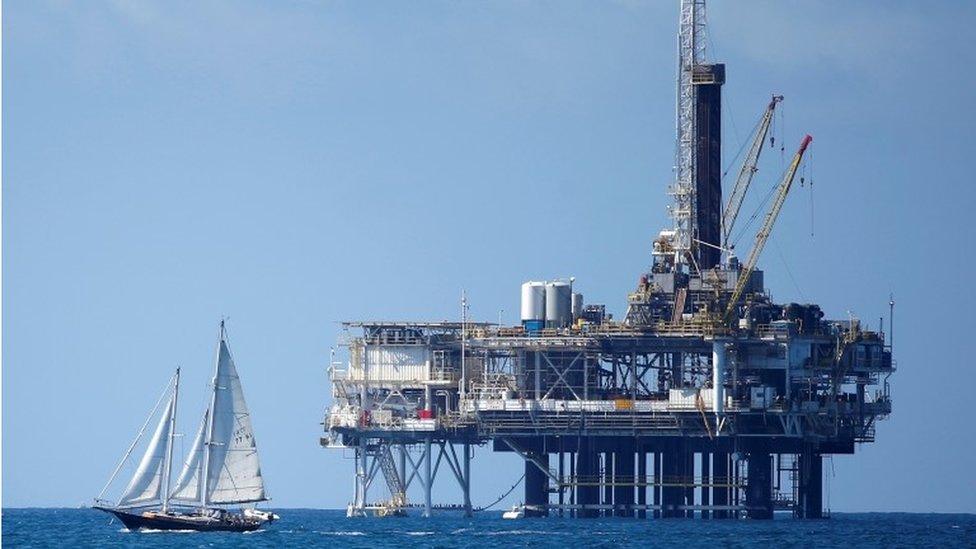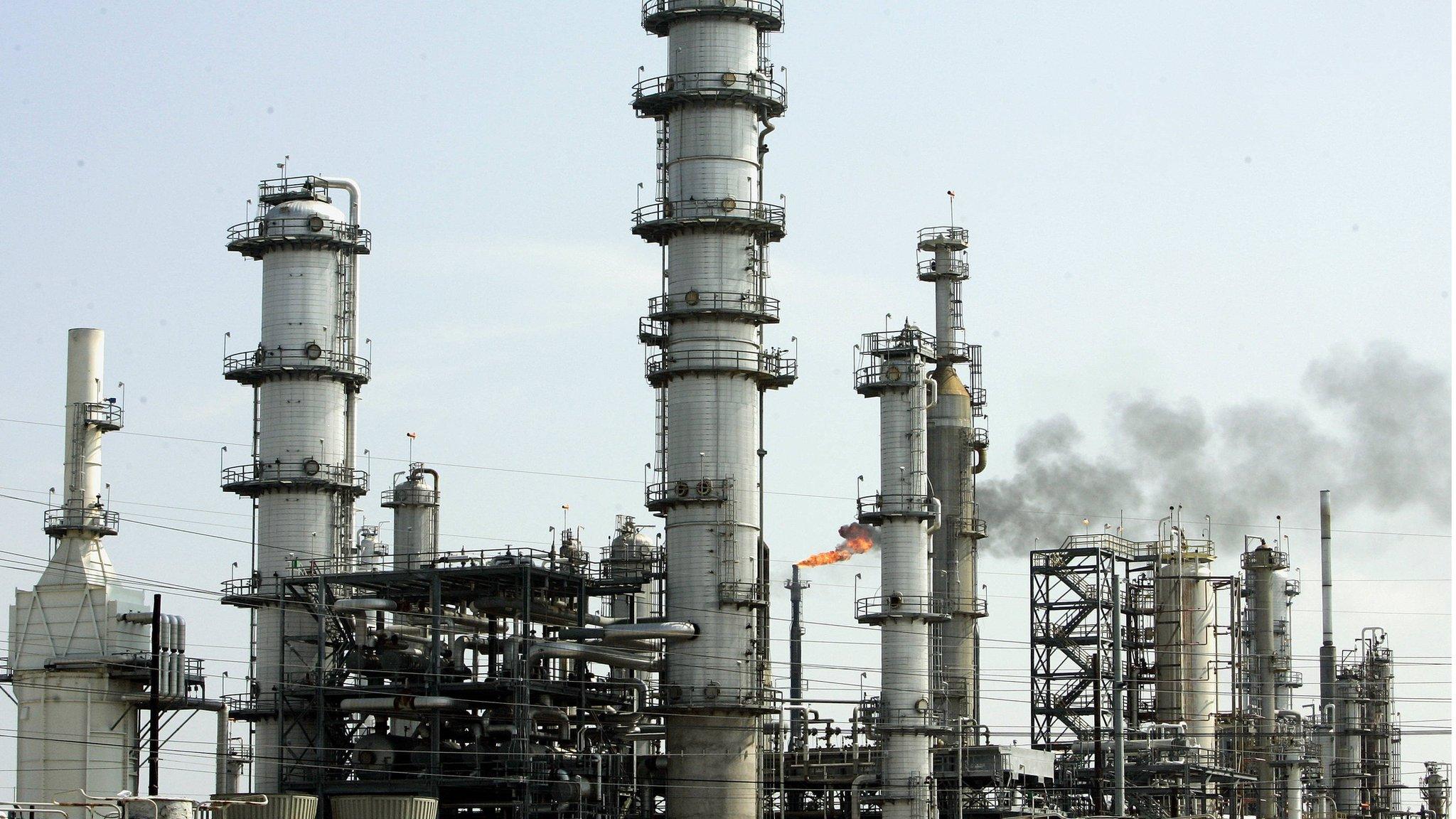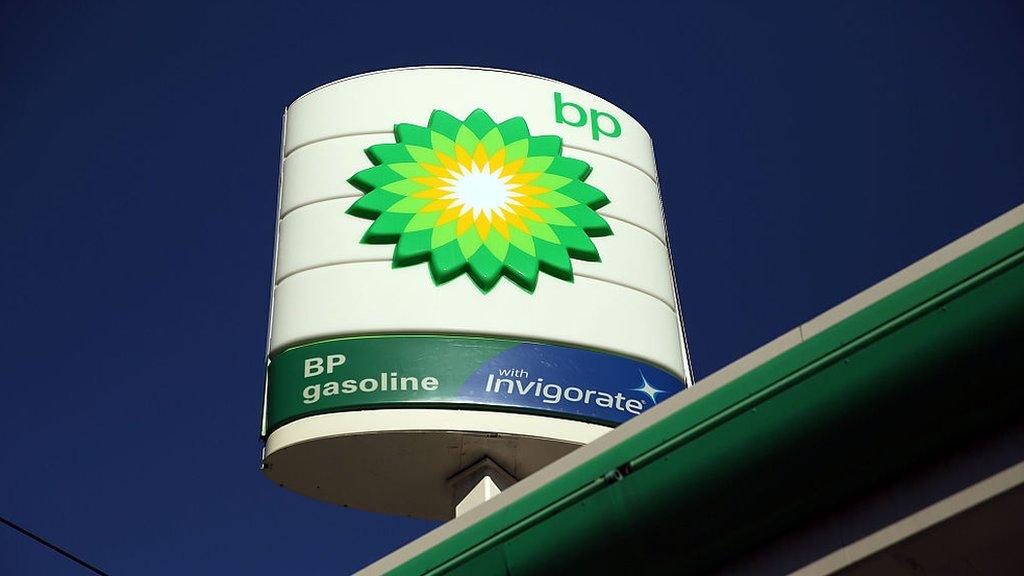Oil price stabilises after earlier losses
- Published

Oil prices have stabilised after hitting fresh five-month lows in early trade on Friday, amid renewed concerns about a worldwide supply glut.
After falling sharply on Thursday, Brent crude fell below $47 a barrel at one point, before recovering to $49.14.
Prices are still around their lowest level since November, when the Opec oil producers' group agreed to cut output.
Investors are worried that Opec nations will fail to rein in output further at their next meeting later this month.
The price of US crude also dropped sharply on Friday morning, but then recovered to stand at $46.28 a barrel.
Oil prices are down by about 15% since the start of the year, despite Opec's agreement in November which cut output by 1.8 million barrels a day.
Supply is still outpacing demand, with US oil production alone up by 10% since summer 2016.
It now pumps out some 9.3 million barrels a day - not far short of the two giant oil producing nations of Russia and Saudi Arabia.
'Jittery' market
Opec's deal in November, and subsequent supply cuts agreed by other oil producing countries, helped to boost prices earlier this year, said David Hunter, an energy industry analyst with Schneider Electric.
But the market has been "jittery" as countries decide whether to extend those cuts, he said.
Opec and other oil nations are meeting on 25 May where they will discuss the success of the six-month cutback and whether it should be deepened.
Russia, one of the non-Opec countries to sign up to the cuts, gave mixed signals on Thursday about whether it would continue.
"While the cartel is expected to extend a self-imposed production cap by another six months, it will be a challenge to convince several non-Opec members to follow suit," said Abhishek Kumar, senior energy analyst at Interfax Energy's Global Gas Analytics.
"Persistent growth in US oil production ... will also make extensions of the Opec cap beyond 2017 unlikely."
Data released on Tuesday indicated US crude stocks fell 930,000 barrels last week. Analysts had been expecting a drop of 2.3 million barrels.
- Published13 April 2017

- Published2 May 2017

- Published4 May 2017

- Published26 March 2017
